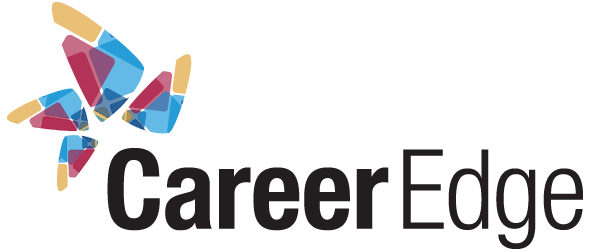Conducting a job interview is more than just checking off a list of qualifications. It is a dynamic process that helps employers gauge not only a candidate’s skills and experience but also their attitude, culture fit, and long-term potential. The quality of questions an interviewer asks can make or break the recruitment process. Poorly chosen questions can result in hiring the wrong candidate, while well-crafted ones can reveal deep insights about the interviewee’s competencies, mindset, and values.
In today’s highly competitive job market, the role of the interviewer is crucial. To ensure that hiring decisions are aligned with company goals and team dynamics, here are the essential categories and examples of questions that every interviewer should consider asking.
1. Introductory and Icebreaker Questions
The beginning of an interview can set the tone for the entire conversation. Icebreakers are not just for casual chatter—they can ease the candidate’s nerves and offer a glimpse into their personality.
Examples:
-
“Tell me about yourself.”
-
“What inspired you to apply for this role?”
-
“What do you know about our company?”
Why it matters:
These questions help candidates get comfortable while giving interviewers a chance to understand what motivates the individual and whether they’ve done their research on the company.
2. Skills and Experience-Based Questions
Once the candidate is at ease, it’s important to delve into their professional background. This is where interviewers can assess whether the applicant’s experience aligns with the job requirements.
Examples:
-
“Can you walk me through your resume?”
-
“Tell me about a project where you had to take the lead.”
-
“What’s a technical skill you’ve mastered, and how have you applied it?”
Why it matters:
These questions help interviewers match a candidate’s past experience to the current role. Real-life examples are more valuable than simply listing skills.
3. Behavioral Questions (Situational Judgment)
Behavioral questions are based on the idea that past behavior is the best predictor of future performance. They allow candidates to showcase how they think, react, and operate under pressure.
Examples:
-
“Tell me about a time you had to meet a tight deadline. How did you handle it?”
-
“Describe a time you had a conflict with a colleague. What was the outcome?”
-
“Have you ever failed at something? What did you learn?”
Why it matters:
These scenarios reveal soft skills such as teamwork, communication, adaptability, and problem-solving—traits that are often more important than hard skills.
4. Cultural Fit and Values Alignment Questions
Even the most qualified candidate can cause friction if they don’t align with the company’s values or culture. Questions in this area help gauge if the individual will thrive within the organization.
Examples:
-
“What kind of work environment do you thrive in?”
-
“How do you align your personal values with your work?”
-
“What does a good team culture look like to you?”
Why it matters:
Hiring someone who shares the company’s core values often results in better retention and job satisfaction for both parties.
5. Problem-Solving and Critical Thinking Questions
Roles often require analytical thinking and the ability to solve problems independently. These questions test how a candidate approaches complex issues.
Examples:
-
“How would you handle a situation where a project you were leading suddenly lost funding?”
-
“You’re given a new assignment with unclear instructions—what steps would you take?”
-
“What’s the most innovative solution you’ve come up with to solve a work problem?”
Why it matters:
These questions assess a candidate’s strategic thinking and creativity, essential for leadership and decision-making roles.
6. Role-Specific and Technical Questions
Tailoring questions to the specific role ensures you’re testing the right competencies. For example, a marketing role might require knowledge of campaign strategy, while a software engineer may need to demonstrate coding proficiency.
Examples:
-
“How do you measure the success of a marketing campaign?” (For marketing roles)
-
“Can you explain a time you debugged a complex system issue?” (For tech roles)
-
“How do you prioritize multiple client accounts?” (For account management roles)
Why it matters:
These questions allow interviewers to probe deeper into role-specific expertise and real-world application of technical knowledge.
7. Growth and Learning Potential Questions
It’s important to hire someone not just for who they are today but who they can become. Questions about growth help assess a candidate’s learning mindset and ambition.
Examples:
-
“Where do you see yourself in five years?”
-
“What’s one professional skill you’re currently working on?”
-
“How do you keep up with industry trends?”
Why it matters:
These questions give insight into whether the candidate is coachable, curious, and invested in their career trajectory.
8. Questions About Work Ethic and Motivation
Understanding what drives a candidate can provide clarity on how they will approach challenges, deadlines, and expectations.
Examples:
-
“What motivates you to do your best work?”
-
“How do you handle tasks you’re not excited about?”
-
“What does success mean to you?”
Why it matters:
These help identify whether the candidate is self-motivated or needs external structure, and how they stay productive over time.
9. Candidate Questions and Closing Section
Interviews should be two-way conversations. Giving candidates a chance to ask questions not only helps them learn more about the role but also shows what they value.
Examples:
-
“Do you have any questions for us?”
-
“Is there anything we haven’t discussed that you’d like to know more about?”
Why it matters:
A candidate’s questions can reflect their priorities, curiosity, and engagement with the opportunity. It also ensures they leave the interview with clarity.
10. Red Flag and Integrity Questions
While you don’t want to assume negativity, these questions can uncover concerns or inconsistencies.
Examples:
-
“Have you ever had to make an unpopular decision at work?”
-
“Tell me about a time you made a mistake—how did you handle it?”
-
“Why did you leave your last job?”
Why it matters:
These questions help test honesty, accountability, and professionalism.
Interviewing is both an art and a science. The right questions can lead to the right hires, fostering productivity, innovation, and a healthy workplace culture. Every interview should be tailored—not just to the job role, but also to the company’s values, the candidate’s background, and the long-term goals of the team. By asking the right mix of technical, behavioral, and personal questions, interviewers can better predict job performance and cultural fit, ensuring smarter, more strategic hiring decisions.
Ultimately, a great interview doesn’t just evaluate a candidate—it also showcases the company’s professionalism, structure, and values. And that begins with thoughtful questions.

